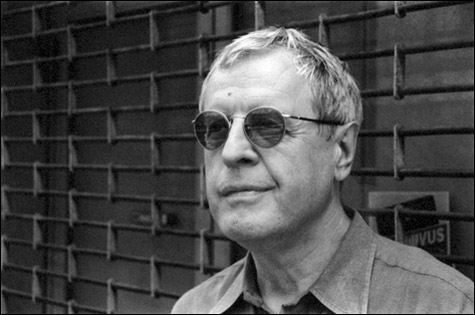
LOVED: Charles Simic is a poet not of big gloomy poems but of small glooms and fears that haunt our waking lives and disturb our sleep. |
After I exited Lafayette College in June 1964, I spent the summer as a cub reporter for my Connecticut home-town newspaper, The Trumbull Times. The only news worth repeating is that I interviewed Jayne Mansfield. She was doing summer stock in a nearby theater and promoting her record album Byron, Tchaikovsky and Me. The interview took place in a motel room. Ms. Mansfield sat on the bed wearing a bikini. Behind her sat her agent, the soon-to-be king of porn movies Matt Cimber. Being a wiseacre, I asked, “Miss Mansfield, what is your favorite Byron poem?” She whispered with Cimber, then turned to me and purred, “All of them are my favorite.”
Ms. Mansfield notwithstanding, most poetry readers make their own selections of their favorite poets. Recently in an unconvincing, and in my opinion unfair, New York Review of Books review of Robert Creeley’s Collected Poems, CHARLES SIMIC bemoaned the thick “collected” volumes of the recently dead like Creeley and Kenneth Koch. Simic argued that books of selected poems would best serve most, if not all, poets. At present he is as good as his word, and the current 60 Poems (Harcourt) is the result. Well, half as good as his word, since the book selects only from 1987 onward, leaving the first 25 years of Simic’s work to come.

Simic is prolific — his 19th book of poems, That Little Something (Harcourt), has just appeared. He has written many worthy, funny, dark, and beautiful poems. Why should we be denied him on his off days? Like so many prolific poets, he has to write a lot to write his good ones — what Elizabeth Bishop, author of 90 published poems, called “the real poems.” I’m all for the cream, but if you love a poet — and Simic’s work is loved — you want it all, if only to enjoy him at his second-best or worst and make your own selection in context. That Little Something reminds readers that Simic is a poet not of big gloomy poems but of small glooms and fears that haunt our waking lives and disturb our sleep. “I come with an expiration date,” he writes in “Eternities.” So do we all.
JORIE GRAHAM is a poet of big ambition who likes to begin her poems in weather, time of day, and some small observation of our daily flux. Since The Errancy (1997), her line has lengthened to uncoil and reach the depths and heights her spirit seeks. In Sea Change (Ecco), she has modulated her music by following long lines with three or four short lines, in-drawing like the tide, then releasing. When Graham is on, she lifts her readers, carrying them away. In this book she is writing poetry rather than stand-alone poems. When the time comes for her “selected,” it will be a hard book to make, especially when it comes to her work of the last 15 or so years, in which she is less discrete, more a poet of rising and falling, wide-angled and symphonic.
Every April National Poetry Month, the reviewer hopes the deluge of books brings a really good poet unknown to him. I had never heard of MARIANNE BORUCH, even though Grace, Fallen from (Wesleyan) follows by a few years her New & Selected Poems (Oberlin). From her new book’s first poem, “A Moment,” Boruch works an appealing double-back rhythm intensified by unexpected line breaks:
And a stranger,
another woman, she too waiting
but near the curb, looking
this way and that, attentive to traffic, hours
from dusk because we were north
near the sea.
She is also adept at poems that focus on objects, such as “Think of the Words,” with its pencil and eraser. Her poems are crisp and confident and have bite — bracing.
Not too long ago, I was complaining to a magazine editor that small-press books don’t get reviewed in magazines and newspapers. He proposed doing an omnibus review of small-press titles, which is exactly not what I had in mind. Small-press books are just like those published by the big presses — some are bad and some good. They deserve to be looked at on their own and not as part of some publishing category. LEWIS WARSH’s Inseparable: Poems 1995–2005 (Granary Books) is a book of mostly longish poems divided into numbered sections. Warsh is playing variations on the serial poem, but he is also a collagist (the cover image of jumbled cut-out alphabet letters is by him) who builds on statements that start one place and end another. These sound something like a bass line that he will suddenly break with a straight narrative — “My father shortened his name from Warshafsky. . . . ”; “Once I was a jealous husband walking down Avenue B” — that will pull you up short and concentrate your attention as the poem goes deeper than expected and, often, hits home. Warsh writes believable non sequiturs. He has a sense of humor, but he’s no ironist. It is the poems that are inseparable, one from another and section following section.